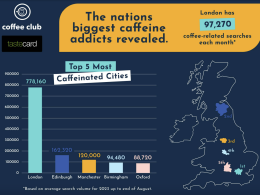In a decisive move, the European Union is set to formally adopt a regulation in the coming weeks that will ban artificial smoke flavours, aiming for implementation later this year. This gives food producers a crucial window of two years to find alternatives after the European Food Safety Authority (EFSA) expressed concerns about the potential carcinogenic effects of these additives. The EFSA’s findings, published in November 2023, pointed to the genotoxicity of smoke flavour primary products (SFPPs)—additives derived from the condensation of various woods—prompting European member states to endorse a proposal in April to discontinue the authorisation of eight such smoke flavourings.
This regulation is part of a larger, ongoing effort by the EU to enhance food quality by banning artificial flavours and colours, and by encouraging the consumption of less processed foods. A highly complex issue, the EU has thus far not been entirely successful in this endeavor, leading to what often appears to be a hasty and uncoordinated approach ripe with internal contradictions. A case in point, as well as a significant part of this effort is the Nutri-Score system, a front of package (FOP) label that is supposedly designed to guide consumers towards healthier food choices. However, Nutri-Score has been met with criticism from many food scientists who argue that it is counterproductive.
Nutri-Score: more hindrance than help
Nutri-Score has been accused of being too lenient on processed foods, effectively encouraging manufacturers to tweak product compositions for better scores without necessarily improving their nutritional quality. This has led to a degradation in food quality. As Mariusz Panczyk, professor at the Faculty of Health Sciences at the Medical University of Warsaw explains, Nutri-Score “may not fully take into account the type of fats used in a product or the presence of essential nutrients, which could be misleading.”
Furthermore, the label “does not incorporate the degree of food processing in its algorithm. Highly processed foods may contain additives, preservatives and artificial substances that are not counted in the Nutri-Score (excluding sweeteners in drinks), but which can negatively affect health. This exclusion can lead to higher scores for processed foods that are less healthy in a broader dietary context.” The contradiction to the EU’s stated objective of increasing and standardising food quality across the bloc should be obvious,
Traditional food producers have also voiced their frustrations, claiming that Nutri-Score unfairly penalises traditional foods. In that sense, Nutri-Score also goes contrary to the European Commission’s revised regulation on Geographical Indications (GIs) in February, aiming to bolster protections for traditional food products and enhance quality safeguards, adding another layer of complications where reconciling Nutri-Score and general quality improvements and protection of traditional foods is becoming impossible.
The divisive subject of food double standards
Adding to the complexity of food quality in Europe is the issue of double standards in food composition, which has stark regional implications. Allegations surfaced in 2011 that new EU Member States in Central and Eastern Europe were being sold lower-quality food compared to their Western counterparts. A study by the Slovak Consumer Association revealed significant quality differences in products such as soft drinks, chocolate, and instant coffee between different EU countries. These findings, which showed the use of inferior ingredients like corn syrup and palm oil rather than sugar cane or qualitatively superior oils in Eastern European markets, sparked a wave of similar surveys and studies.
Governments in Croatia, the Czech Republic, Slovakia, Slovenia, and Hungary took their grievances to Brussels, with Czech Agriculture Minister Marian Jurečka decrying the East’s role as “Europe’s garbage can,” and Bulgarian Prime Minister Boyko Borissov accusing the EU of “food apartheid.” The disparity was not merely a matter of taste adjustment to local preferences or economic factors, but a clear case of misleading consumers with lower quality at the same or higher prices.
No way to square the circle?
This controversy highlights the complex nature of food quality issues within the EU. The implementation of front-of-package labels like Nutri-Score, while supposedly intended to promote healthier choices, has paradoxically led to a decline in the overall quality of food products. The European Commission’s efforts to standardise food quality and improve consumer information must take into account regional differences and the valid concerns raised by traditional food producers.
The recent regulation banning artificial smoke flavours is a positive development, addressing specific health risks identified by scientific studies. Nevertheless, it underscores the broader challenge the EU faces in balancing food safety, quality, and consumer transparency. As the Union advances its food quality policies, it is crucial to ensure these initiatives do not unintentionally lower standards or exacerbate regional disparities. The new incoming Commission has its work cut out for itself to ensure that no corners are cut at the expense of European consumers’ food quality.
Image credit: Nathan Powers via Unsplash









